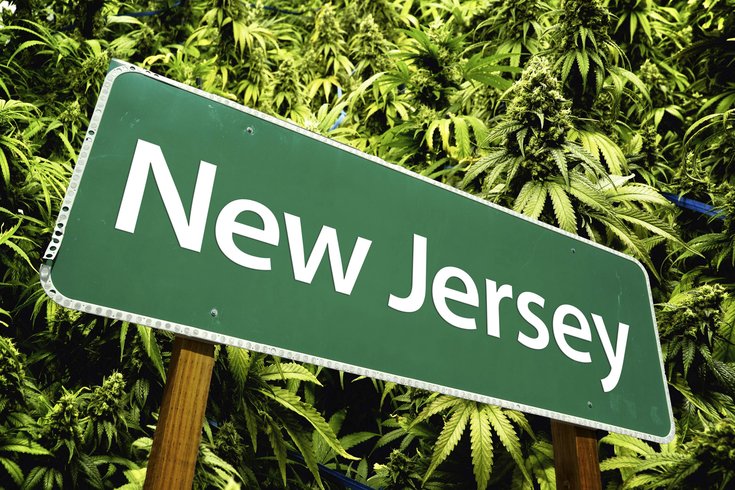 The legalization of adult use cannabis has been anticipated in New Jersey since Governor Murphy took office. After considerable negotiation between the Governor and the state legislature, as of this writing it appears there actually will be a vote on legislation to legalize adult use cannabis. This represents positive news to those who believe that the legalization of adult use is overdue.
The legalization of adult use cannabis has been anticipated in New Jersey since Governor Murphy took office. After considerable negotiation between the Governor and the state legislature, as of this writing it appears there actually will be a vote on legislation to legalize adult use cannabis. This represents positive news to those who believe that the legalization of adult use is overdue.
The excitement over this latest development is enhanced by the recent news of a bill to “normalize” banking relations for the cannabis industry, the “Secure and Fair Enforcement Banking Act of 2019” (SAFE Banking Act) that was introduced in the House of Representatives by a bipartisan group of 106 members of Congress.
While much has been written in recent months concerning New Jersey’s adult use program and the various provisions undergoing debate, this article will touch briefly on a few highlights that we feel are of interest to those readers who may purchase or lease real estate (as a landlord or tenant) for a cannabis operation. We recognize that as of this writing, there is neither a guaranty of passage nor a guaranty that further change will not alter significantly the current proposed iteration of the law. Nevertheless, here is a “tasting” of the many issues that will affect cannabis-related real estate transactions.
The law will establish a new five member Cannabis Regulatory Commission in the Department of Treasury that will oversee the adult and medical use programs in place of the Department of Health. Multiple forms of licenses will be available, including a Class 1 Cannabis Grower license, a Class 2 Cannabis Processor license, a Class 3 Cannabis Wholesaler license, and a Class 4 Cannabis Retailer license. With permission of both the State and municipality, a licensed cannabis retailer may secure an endorsement to operate a cannabis consumption area at its retail facility for the onsite consumption of cannabis.
As proposed, owners of multifamily housing (which generally speaking refers to three or more units of dwelling space) may prohibit or regulate smoking of cannabis, but may not prohibit or otherwise regulate the non-smoking consumption of cannabis otherwise authorized by the law. In other respects, the owner or party that controls a property is not precluded from prohibiting or regulating the consumption, use, display, transfer, distribution, sale or transportation of cannabis on their property
In lieu of a percentage tax on sales, there will be a $42 per ounce tax imposed by the State. In addition, municipalities that do not ban cannabis may enact an ordinance that imposes a tax of up to one percent of the receipts from sales by a cannabis wholesaler, two percent of the receipts from sales by a cannabis grower and a cannabis processor, and three percent of the receipts from sales by a cannabis retailer.
 While many municipalities have already prohibited cannabis in their jurisdictions, those ordinances will not be of any force or effect under the proposed legislation. In order to outlaw cannabis, a municipality will have to enact a new ordinance within the timeline prescribed by the law, or the municipality will be compelled to allow licensees to operate within its borders. For those municipalities that do permit a cannabis operation, they will have the right to address zoning for each authorized class of operation. For those that either fail to address zoning or fail to prohibit properly a cannabis operation, growing, cultivation and processing will be deemed to be a permitted use in all industrial zones, and retail sales will be deemed a conditional use in all commercial zones or retail zones.
While many municipalities have already prohibited cannabis in their jurisdictions, those ordinances will not be of any force or effect under the proposed legislation. In order to outlaw cannabis, a municipality will have to enact a new ordinance within the timeline prescribed by the law, or the municipality will be compelled to allow licensees to operate within its borders. For those municipalities that do permit a cannabis operation, they will have the right to address zoning for each authorized class of operation. For those that either fail to address zoning or fail to prohibit properly a cannabis operation, growing, cultivation and processing will be deemed to be a permitted use in all industrial zones, and retail sales will be deemed a conditional use in all commercial zones or retail zones.
Interestingly, a cannabis grower may not operate or be located on land that is valued, assessed or taxed as an agricultural or horticultural use under the Farmland Assessment Act of 1964. In addition, a licensee is not eligible to receive any State or local economic incentives, and a property owner, developer or operator of a project that will be used in whole or in part for a licensed facility will not be eligible for State or local economic incentives. It is further important to note that the issuance of a license at a location that is the subject of a State or local economic incentive will invalidate the right of the property owner, developer or operator to continue to benefit from the incentive once the license is issued.
Applicants are required (with some limited exceptions) to establish a labor peace agreement with a bona fide labor organization. In addition, and noteworthy for landlords that may perform tenant fit-up work, applicants are required to use best efforts to employ union labor in the construction or retrofitting of their business facilities.
We recognize that the foregoing represents a very limited number of issues under the latest draft of legislation, and that there are a host of provisions in the law that are not addressed in this writing. Once enacted, however, a more detailed analysis will follow.
